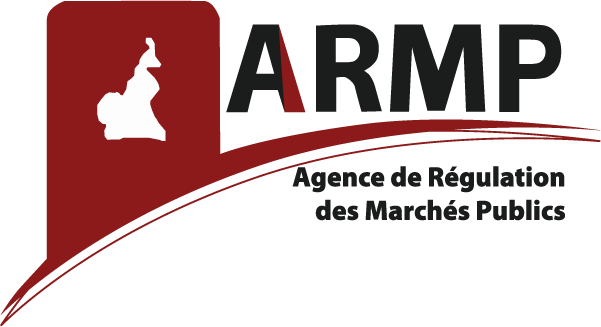The 1996’s Constitution of the Republic of Cameroon, in its Section 1 has enshrined Cameroon as a unitary and decentralized State, along with Councils and Regions as the main decentralized units. Such an orientation was materialized with the gradual setting up of a legislative and regulatory framework based on the promulgation of laws, more specifically Law N0. 2004/017 of July 22, 2004 relating to the Orientation of the decentralization and the laying down of general rules, Law N0. 2004/019 of July 22, 2004, relating to the laying down of the general rules applicable to Regions, Law N0. 2004/018 of July 22, 2004 relating to the laying down of rules applicable to councils, have been promulgated, Law N0. 2009/011 of July 10, 2009 to organize the financial regime of the Regional and Local Authorities, as well as Law N0. 2009/019 of December 15, 2009 relating to local taxation. Such laws have been supplemented by various separate implementing instruments amongst which the Order N0.00136/A/MINATD/DCTD of August 24, 2009 relating to the enforcement of the standard tables-related communal employments. The organizational chart of the councils referred to in the above-mentioned Order shall provide for a certain number of services and units, one of which shall be charged with fostering the economy. It is, however, worth noting that very few councils have, so far, been implementing such an organizational chart. With a view to reviving the effectiveness and efficiency of councils in terms of human resources, PNDP has undertaken, under its third phase, to build up the capacities for intervention of councils, to back up the decentralization process, thereby recruiting a Council Development Expert. The relevance and presence of such an expert are not only justified by the regulatory framework referred to above, but also by the current acute lack, by councils, of skilled staff. Which shall be detrimental to an efficient and effective management, given the skills, knowledge and resources transfer to be put at their disposal by the State and PNDP.
This mission shall have as overall objective the recruitment of Development Expert in certain councils.
Placed under the authority of a Mayor to whom s/he shall be accountable to, the Development Expert shall be required to provide him/her with a technical and operational support, and shall equally have as main missions to:
a. Plan and programme the council’s actions at mid-and-short term;
b. Monitor the execution of activities, notably projects;
c. Boost the local economy;
d. Ensure that the socio-environmental aspects hare been duly taken into account when implementing such activities.
Such missions shall be broken down into tasks as follows:
a. Planning and programming of the council’s actions at mid- and- short term;
i. Participate in the drawing up and monitoring process, as far as the implementation of the communal development plan is concerned;
ii. Organize data collection on the field;
iii. Propose and set up a communication and information mechanism earmarked for the large public;
iv. Propose and set up a citizen-control mechanism;
v. Organize the assessment of the council’s actions on a participatory basis;
vi. Propose and organize actions geared towards seeking funds.
b. Monitoring the participatory assessment/evaluation in connection with the implementation of the Communal Development Plan (CDP) ;
i. Draw up and monitor the Council’s Annual Investment Plan;
ii. Draw up and monitor the Procurement Plan (PP);
iii. Participate in and monitor the technical and environmental feasibility studies in connection with all projects implemented at the country’s level;
iv. Monitor the execution of communal projects;
v. Draft and disseminate progress reports to be forwarded to the Mayor and to the RCU of PNDP;
vi. Propose and monitor a mechanism aimed at up-keeping and maintaining communal works;
vii. Propose and monitor a mechanism aimed at operationalizing the communal infrastructures.
c. Promotion of the local economy;
i. Assist and advise the municipal executive in terms of economic development and poverty alleviation;
ii. Manage and promote the council’s service provision in terms of economic development;
iii. Manage and monitor the initiatives carried out by community-based organizations;
iv. Monitor the economic development actions deriving from the decentralized co-operation.
d. Mainstreaming socio-environmental components in the implementation of activities
i. See to it that issues relating to the management of natural resources, gender, relationship management, various forms of nuisance, be it in the drawing up process or in that of the implementation of the communal development plan, have been duly taken into account;
ii. Ensure that the socio-environmental examination form/sheet of micro-projects is properly filled in by the Consultant, upon carrying out the necessary consultation with the stakeholders, including the marginalized groups, and women associations;
iii. Ascertain that the socio-environmental measures have been duly taken into consideration during the design, implementation and going into operation of such micro-projects;
Assist the beneficiary communities, and more specifically, the micro-projects’ management committees of which s/he is a member, in the identification and implementation of such socio-environmental components.
The Communal Development Expert shall, at least, be expected to have undergone a professional training qualifying him/her as an Advanced/Qualified Technician (GCE AL+2) in areas such as civil engineering, Rural, Agriculture, Rearing, Community-based Engineering Development or an equivalent qualification , or even a university qualification/degree (licence) in Economic Science or Development Science. The proficiency in terms of projects management and operational management shall constitute additional assets.
|
Regions |
Council concerned |
Total |
|
Adamawa |
NGANHA |
01 |
|
Centre |
Batchenga, Bafia, Bondjock, Lobo, Makénéné, Yoko, Olanguina, Yaounde I, Yaounde II, Yaounde III, Yaounde IV, Yaounde V, Yaounde VI |
13 |
|
Littoral |
Douala I, Douala II, Douala III, Douala IV, Douala V, Douala VI, Nkongsamba I, Nkongsamba II, Nkongsamba III, Edea I, Edea II |
11 |
|
South |
Kribi I |
01 |
|
South-West |
Limbe II, Limbe III, Kumba I, Kumba II, Kumba III |
05 |
Tender files shall be deposited, latest, on November 14, 2018 in the councils concerned or even in the Regional Co-ordination Units of the Regions concerned.
Candidates who are interested in this Call for candidatures may be required to come closer to the Regional Units concerned by the Program, or to the Councils concerned or even to the following address:
National Co-ordination Units of PNDP, at the place referred to as « pont-dragage », just after the residence of the Ambassador of Côte d’Ivoire, not far from the offices of the United Nations Education, Science and Culture Organization/UNESCO and from the United Nations Development Program /PNUD.
P.O.: 660 Yaounde – Cameroon
Phone: +237 222 21 36 64
Fax: + 237 222 21 36 63
Email: pndp@pndp.org, and during the following working hours: from 08:00 A.M local time, to 05:00 P.M. local time.

